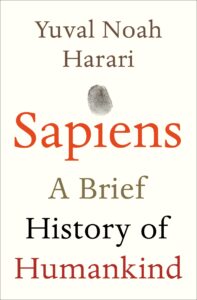In today’s fast-paced world, where distractions abound and attention spans dwindle, finding ways to expand our minds and unlock our full potential is of utmost importance. One of the most effective ways to achieve this is through reading books that challenge our thinking, broaden our perspectives, and inspire personal growth. In this article, we will explore ten mind-expanding books that can help you tap into your untapped potential and embark on a transformative journey of self-discovery.
“Factfulness” by Hans Rosling

In “Factfulness,” the late Hans Rosling, a renowned Swedish physician and statistician, challenges our deeply ingrained misconceptions about the world. This thought-provoking book offers a fresh perspective on global trends, presenting a more accurate and nuanced worldview. Rosling highlights the power of data and critical thinking to overcome biases and understand the true state of the world. By dispelling common myths and misconceptions, “Factfulness” equips readers with a more rational and fact-based understanding of the world, expanding their minds and enabling them to make better-informed decisions.
“Moonwalking With Einstein” by Joshua Foer
Have you ever wondered how some individuals possess extraordinary memory capabilities? In “Moonwalking With Einstein,” Joshua Foer explores the fascinating world of memory techniques and the untapped potential of our cognitive abilities. Foer takes us on his personal journey from an average memory to becoming a top competitor in the U.S. Memory Championship. He reveals the astonishing strategies employed by “memory athletes” and delves into the science of memory. By applying these techniques, readers can enhance their memory, boost cognitive skills, and unlock their full mental potential.
“Sapiens” by Yuval Noah Harari
In “Sapiens,” Yuval Noah Harari paints a sweeping and thought-provoking portrait of the history of humankind. Through an engaging narrative, Harari challenges conventional beliefs and invites readers to question their understanding of humanity’s past. From the emergence of Homo sapiens to the present-day dominance of our species, “Sapiens” explores key historical events and societal developments that shaped our world. By understanding our shared history, readers can gain new perspectives, cultivate empathy, and unlock their full intellectual potential.
“The Beginning of Infinity” by David Deutsch
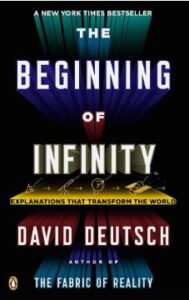
In “The Beginning of Infinity,” physicist and philosopher David Deutsch takes readers on a mind-bending exploration of knowledge, creativity, and progress. Deutsch argues that our capacity for infinite possibilities sets humans apart from other species. He advocates for the power of rational thinking, open-mindedness, and the pursuit of scientific understanding to overcome challenges and propel humanity forward. By embracing these concepts, readers can expand their minds, challenge their assumptions, and unlock their full potential.
“Emotional Intelligence” by Daniel Goleman
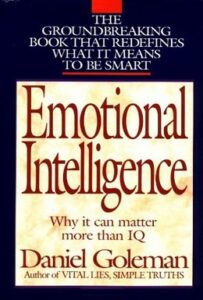
In a world where emotional well-being is increasingly valued, “Emotional Intelligence” by Daniel Goleman provides invaluable insights into the importance of understanding and managing emotions. Goleman explores the concept of emotional intelligence and its impact on personal growth, relationships, and success. Through practical examples and scientific research, the book offers strategies for improving emotional intelligence, such as self-awareness, empathy, and effective communication. By cultivating emotional intelligence, readers can enhance their self-awareness, build meaningful connections, and unlock their full potential.
“What If?” by Randall Munroe
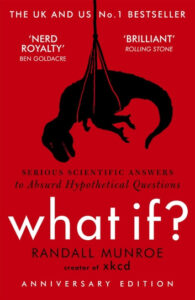
Randall Munroe, the creator of the popular webcomic xkcd, takes readers on a mind-bending journey with “What If?”. This book explores absurd hypothetical questions and provides scientifically grounded and entertaining answers. Munroe’s witty and informative approach challenges readers to think critically, embrace curiosity, and explore unconventional ideas. By pondering bizarre scenarios and their scientific explanations, readers can expand their imagination, hone their analytical thinking skills, and unlock their full creative potential.
“Behave” by Robert Sapolsky
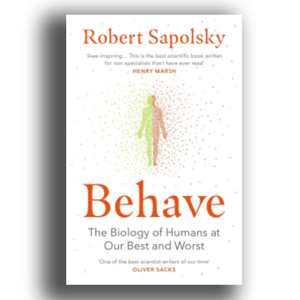
In “Behave,” neuroscientist and primatologist Robert Sapolsky explores the complex nature of human behavior through the lens of biology. Sapolsky delves into the intricate interplay between genetics, environment, and individual experiences that shape our actions. By unraveling the biology behind our behavior, the book sheds light on the factors influencing our choices, emotions, and relationships. Understanding the biological underpinnings of behavior can expand readers’ empathy, improve self-awareness, and unlock their full potential for personal growth.
“A Brief History of Time” by Stephen Hawking
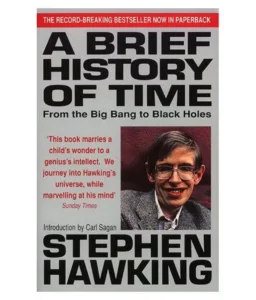
Stephen Hawking’s “A Brief History of Time” takes readers on a captivating journey through the mysteries of the universe. Hawking explores mind-boggling concepts such as black holes, the Big Bang, and the nature of time itself. By unraveling the complexities of astrophysics in a relatable manner, Hawking challenges readers to expand their understanding of the cosmos and their place within it. The book invites readers to think beyond the confines of Earth and tap into the awe-inspiring wonders of the universe, unlocking their full intellectual potential in the process.
“Why We Sleep” by Matthew Walker
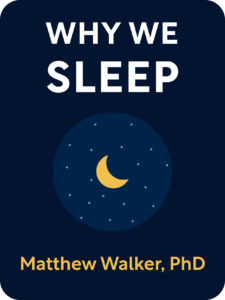
Matthew Walker’s “Why We Sleep” sheds light on the vital role of sleep in our physical and mental well-being. Through scientific research and engaging anecdotes, Walker explores the profound impact of sleep on our cognitive abilities, creativity, and overall health. By understanding the importance of quality sleep and implementing effective sleep habits, readers can optimize their brain function, enhance memory retention, and unlock their full potential.
“Thinking, Fast and Slow” by Daniel Kahneman
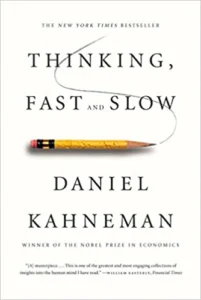
In “Thinking, Fast and Slow,” Nobel laureate Daniel Kahneman delves into the two systems of thinking that influence our decision-making processes. Kahneman explores cognitive biases, heuristics, and the impact of intuitive and deliberate thinking on our choices. By understanding the workings of our minds, readers can identify common thinking errors and make more informed decisions. This book challenges readers to engage in critical thinking, question their assumptions, and unlock their full intellectual potential.
Conclusion
Reading mind-expanding books is an enriching journey that allows us to transcend our limits and unlock our full potential. From challenging misconceptions to exploring the mysteries of the universe, these ten books offer valuable insights, provoke thought, and inspire personal growth. By embracing the knowledge, perspectives, and strategies shared within these pages, readers can expand their minds, broaden their horizons, and embark on a transformative path of self-discovery.
FAQs
1. Can these books be helpful for students or professionals?
Absolutely! These mind-expanding books are beneficial for individuals from all walks of life, including students and professionals. They offer valuable insights, stimulate critical thinking, and inspire personal growth, regardless of one’s field of study or occupation.
2. Are there any other mind-expanding books you would recommend?
Certainly! The books mentioned in this article are just the tip of the iceberg. There are countless other mind-expanding books available, covering various topics and disciplines. Some noteworthy recommendations include “The Power of Now” by Eckhart Tolle, “Thinking in Systems” by Donella H. Meadows, and “The Art of Thinking Clearly” by Rolf Dobelli.
3. How long does it usually take to finish reading these books?
The time required to read these books may vary depending on factors such as reading speed, the complexity of the content, and individual reading habits. However, on average, it may take a few weeks to a few months to complete each book, depending on the reader’s pace and commitment.
4. Can these books be accessed in e-book or audiobook formats?
Yes, most of these books are available in e-book and audiobook formats, allowing readers to choose their preferred medium. E-books and audiobooks provide convenient options for those who prefer digital formats or enjoy listening to books while on the go.
5. Are there any age restrictions for reading these books?
There are no specific age restrictions for reading these mind-expanding books. However, it is important to consider the complexity and maturity of the content when recommending them to younger readers. Parents and educators can assess whether the books are suitable for individual readers based on their reading comprehension level and personal development.


